
Recent development of a tool to detect early signs of cachexia, characterized by muscle loss, anorexia and weakness, in patients with cancer may help with early diagnosis, leading to better prognosis and quality of life.

Recent development of a tool to detect early signs of cachexia, characterized by muscle loss, anorexia and weakness, in patients with cancer may help with early diagnosis, leading to better prognosis and quality of life.

Stressing self care, a Mei Fu developed an online platform for prevention and treatment of lymphedema.
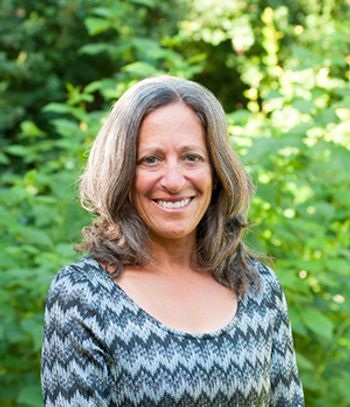
Nurses can model and encourage patients toward healthy behaviors making it E.A.S.I.E.R in just a few simple steps.



Alene Nitzky will moderate our next #CureConnect twitter chat about helping patients to get active and fit physical activity into their routine.
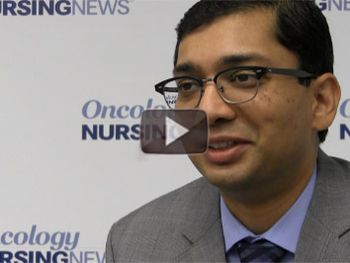
Arvind Shinde, MD, MBA, MPH, assistant clinical professor at Cedars-Sinai Medical Center, discusses the potential benefits of monitoring patients with fitness trackers.

Cancer survivors are not more likely than the general population to fully engage in healthy lifestyle behaviors. Interventions to increase physical activity and smoking cessation programs are needed.

The health benefits of yoga are many, but in the oncology setting, studies of the approach have focused primarily on women with breast cancer. However, a small, first-of-its-kind study by researchers at the Perelman School of Medicine at the University of Pennsylvania is exploring how yoga may also improve treatment-related symptoms in men who are undergoing radiotherapy for their prostate cancer. And the results, thus far, are promising.

Kathryn H. Schmitz, PhD, MPH, professor of Public Health Sciences and associate director of Population Sciences at the Penn State Cancer Institute, discusses what researchers already know regarding diet and exercise and breast cancer, and what questions are yet to be answered.
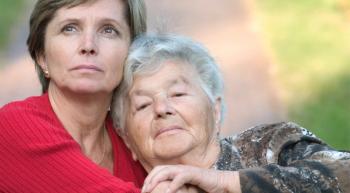
Caring for loved ones in the midst of major health issues is taxing for anyone, but a new report reveals that caregivers of patients with cancer experience even more stress and responsibilities than caregivers of patients with other diseases.
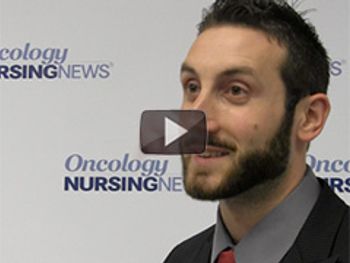
Ian R. Kleckner, PhD, Research Assistant Professor at University of Rochester Medical Center, discusses the benefits of exercise for patients with chemotherapy-induced peripheral neuropathy (CIPN).

Researchers from the University of Arizona in Tucson and the American Cancer Society conducted a systematic literature review to examine associations between adherence to established cancer prevention guidelines and overall cancer incidence and mortality.
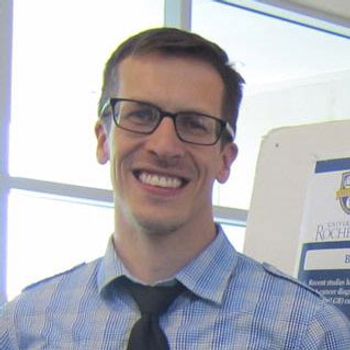
Oncology nurses receive a steady stream of information on the benefits of exercise for health and wellness—not just a way to help prevent cancer and lower risk for the general population, but to improve quality of life and reduce the risk of recurrence for patients and survivors.
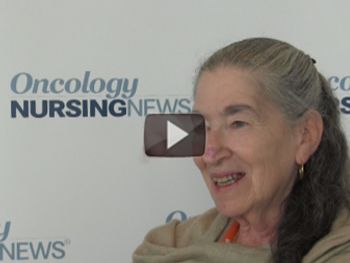
Carol Blecher, MS, RN, AOCN, Trinitas Comprehensive Cancer Center, discusses using exercise not only as rehabilitation for patients with cancer, but also “prehabilitation”.
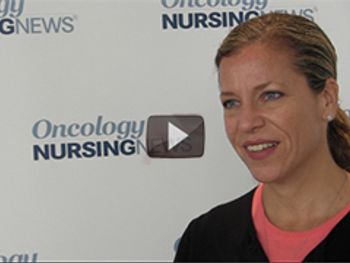
Carmela Hoefling, RN, MSN, APN-C, AOCNP, Rutgers Cancer Institue of New Jersey, discusses what oncology nurses can do to identify and treat patients who may be malnourished.

Amita Patel, NPC, Regional Cancer Care Associates, Central Jersey Division, talks about benefits of a multidisciplinary care team and some issues that providers should be aware of when treating patients undergoing chemotherapy.

A study of more than 2400 women with early-stage breast cancer has found that those who fasted 13 hours or more at night reduced their risk of breast cancer recurrence, findings that suggest prolonging the nightly fasting interval may offer a relatively safe nonpharmacologic way for women with early breast cancer to lower their risk of disease recurrence.
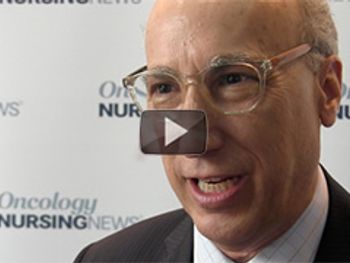
Barry Berger, MD, Exact Sciences Corporation, discusses Cologuard, an at-home screening for colorectal cancer.
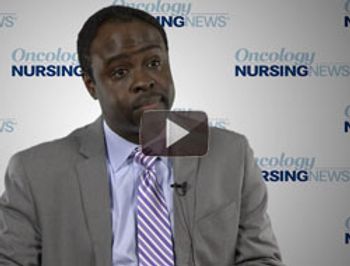
Joseph Ravenell, MD, MS, from NYU Langone Medical Center, discusses access to screening among black men.

Focusing on a fiber-rich diet at a young age may help lower the risk of developing breast cancer later, according to findings of a new study.
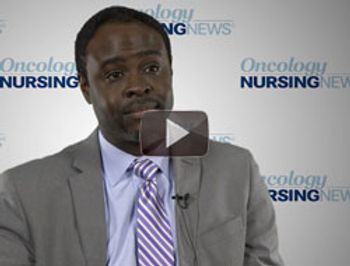
Joseph Ravenell, MD, MS, discusses some of the challenges with screening black men for colon cancer.
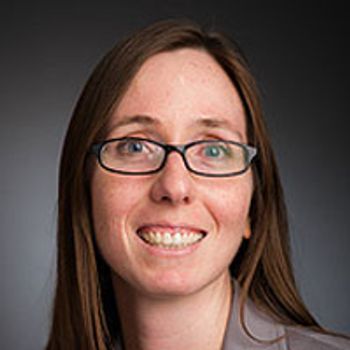
Mounting research continues to show increased risk of cancer recurrence and death in obese individuals, but findings of a new study highlight the benefits of weight-loss interventions for overweight and obese cancer survivors.

Using an individualized approach to decide whether asymptomatic women under age 50 should have mammograms is at the center of the final screening guidelines published by the US Preventive Services Task Force (USPSTF), but the group
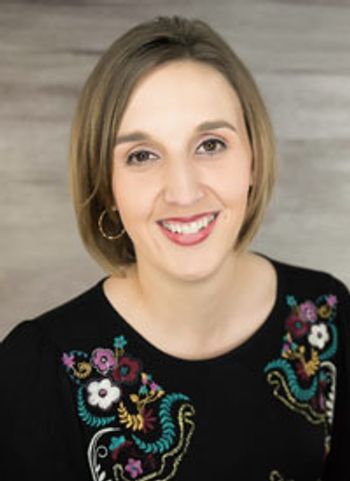
It's a new year, new you... learn how you can help patients get on a healthy track this year.
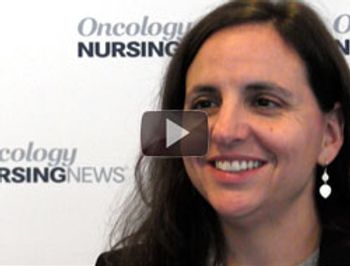
Jennifer Temel, MD, clinical director of thoracic oncology at Massachusetts General Hospital, discusses screening for pain and other cancer-related symptoms.
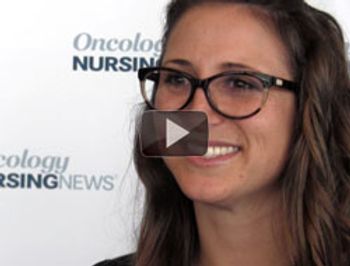
Alison Morris, RN, OCN, a Hematology/Oncology nurse practitioner at Stanford Health Care, discusses screening patients with cancer for emotional and physical distress as well as developing a nurse-led algorithm to categorize distress.
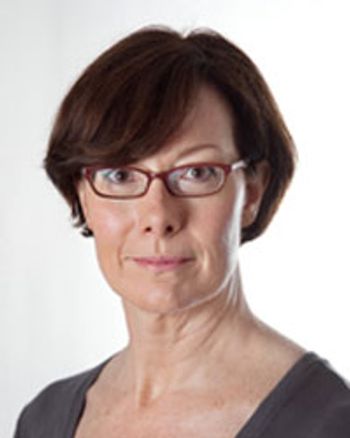
Women at an elevated risk of breast cancer may be able to avoid preventive procedures with regular aerobic exercise, according to a new study published in Breast Cancer Research and Treatment.

Despite having significantly elevated risks of long-term health problems, many cancer survivors eat poorer-quality diets than the general population.
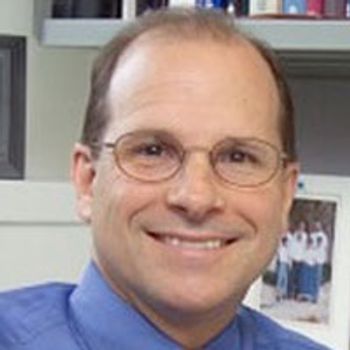
The American Cancer Society (ACS) has revised its breast cancer screening guidelines, recommending that women at an average risk of breast cancer receive a mammography annually starting at age 45-5 years later than previous recommendations formulated in 2003.